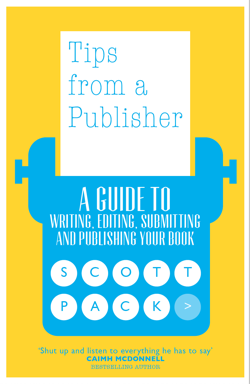Jon Reed's Blog, page 4
April 22, 2021
MASTERCLASS: How to Create a Setting – with Liz Fenwick (Online, Weds 16th Jun, 2021)
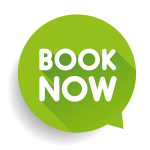 Masterclass: How to Create a Setting
Masterclass: How to Create a Setting
Speaker: Liz Fenwick
When: Wednesday 16th June 2021, 6:30pm UK time (BST)
Where: Online – join us from anywhere in the world
Price: £15-£30 / FREE to members
Booking: Eventbrite (Limited places available – book early!)
This post contains Amazon affiliate links to the books mentioned. See our Affiliate policy for more details. Books by our masterclass speakers are also available in our Bookshop.org bookshop.
How to Create a Setting – with Liz FenwickHave you read a book where you felt the wind, tasted the air, and shivered with the protagonist? Learn how to use the setting to breathe life and an extra dimension into your stories. Discover tools to bring your location alive.
Liz Fenwick, according to The Guardian is ‘the queen of the Cornish contemporary novel’, and has used location as her brand. Her books are immersed in Cornwall past and present. How does she make this happen?
How do you create a setting? How does setting work in a novel? Is more than just a mark on the map?
What we will cover:How setting is not just descriptionHow to use the physical world as a way to open up your characters’ thoughtsHow to visualize your setting to build your world – and storyWhy setting isn’t just a place on the map but also time – both historical and seasonalHow setting impacts a character – physically and mentallyWorkshop includes:Valuable insights, practical tips and inspiring advice from Liz FenwickYour chance to ask Liz anything about writingA one-page PDF download with additional tipsAccess to a video replay of the eventAbout Liz Fenwick‘The queen of the Cornish contemporary novel’ – The Guardian
Liz Fenwick was born in Massachusetts and after 10 international moves she’s back in the UK with her husband and two mad cats. She made her first trip to Cornwall in 1989 and bought her home there seven years later. She’s a bit of a global nomad, but her heart forever remains in Cornwall.
Liz is the author of eight previous novels set in Cornwall: The Cornish House, A Cornish Affair, A Cornish Stranger, Under a Cornish Sky, A Cornish Christmas Carol, The Returning Tide, One Cornish Summer and The Path to the Sea.
For more information visit lizfenwick.com, or find her on Twitter or Instagram at @liz_fenwick – where you can follow her regular #PlotWalk!
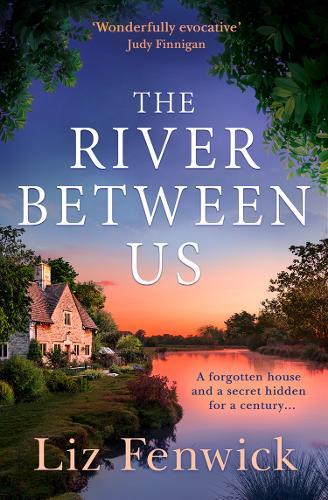 About The River Between Us
About The River Between Us‘Wonderfully evocative’ – Judy Finnigan
The Tamar river has divided Devon and Cornwall for centuries, but it’s also divided families, friends and lovers. The River Between Us is Liz Fenwick’s ninth novel set in Cornwall. It tells the story of a family torn apart during World War One, and how a woman who arrives to renovate a tumbledown cottage nearly a century later unravels a mystery, which has been concealed for generations.
About the Publishing Talk MasterclassesOur online masterclasses are talks, interviews, seminars and workshops from successful authors, publishers, agents and industry experts designed to help you fulfil your potential as an author.
 You will be sent email reminders with joining instructions two days, two hours and 10 minutes before the start time of 6:30pm UK time (BST) on Weds 16th Jun 2021.
You will be sent email reminders with joining instructions two days, two hours and 10 minutes before the start time of 6:30pm UK time (BST) on Weds 16th Jun 2021.
You can join this masterclass from anywhere in the world. If you’re outside the UK, please use this time zone converter to check your local live streaming time.
10:30am PDT | 11:30am MDT | 12:30pm CDT | 1:30pm EDT | 6:30pm BST | 7:30pm CEST
The post MASTERCLASS: How to Create a Setting – with Liz Fenwick (Online, Weds 16th Jun, 2021) appeared first on Publishing Talk.


April 19, 2021
MASTERCLASS: How to Write a Memoir – with Allegra Huston (Online, Weds 14th Jul, 2021)
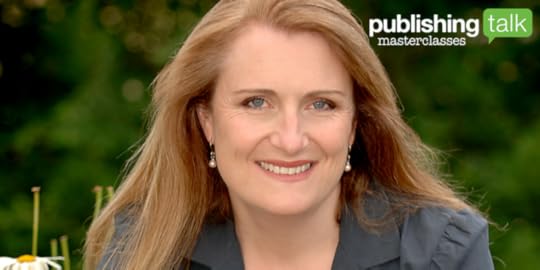 The author of bestselling memoir Love Child talks about how to draw a compelling narrative out of the rough material of your life.
The author of bestselling memoir Love Child talks about how to draw a compelling narrative out of the rough material of your life. Masterclass: How to Write a Memoir
Masterclass: How to Write a Memoir
Speaker: Allegra Huston
When: Wednesday 14th July 2021, 6:30pm UK time (BST)
Where: Online – join us from anywhere in the world
Price: £15-£30 / FREE to members
Booking: Eventbrite (Limited places available – book early!)
This post contains Amazon affiliate links to the books mentioned. See our Affiliate policy for more details. Books by our masterclass speakers are also available in our Bookshop.org bookshop.
How to Write a Memoir – with Allegra HustonMemoirs are the hot publishing trend. They have become hugely popular in recent years, and frequently top the bestseller charts. While not everyone has a novel in them, everyone has a life story to tell. But how do you turn yours into a compelling narrative?
Where does the story begin and end? What is it actually about? What are the legal issues? And how do you write authentically without worrying about hurting people you love?
Allegra Huston is the author of the bestselling memoir Love Child: A Memoir of Family Lost and Found. She runs an annual 5-day residential workshop in memoir writing, and has taught writing courses at the University of Oklahoma, the National University of Ireland, Galway, and the UK’s prestigious Arvon Foundation. She is currently developing an online community for people who are exploring writing as a creative pursuit, at imaginativestormwriting.circle.so
This is your chance to learn how to write a memoir from a bestselling memoirist and writing tutor. Benefit from Allegra Huston’s expertise in memoir writing in just 90 minutes. Join us for this illuminating masterclass – and learn how to draw a compelling narrative out of the rough material of your life.
What we will cover:What memoir is – and what it isn’tHow to develop a narrative structure – and choose which aspects of your life story to focus onHow to write authentically – without worrying about what people will think!How to develop your characters on the page (even if they are real people)How to build your settingHow to edit your workLegal issues to be aware of around memoir writingWorkshop includes:Valuable insights, practical tips and inspiring advice on how to write a memoir from Allegra HustonYour chance to ask Allegra anything about memoir writingA one-page PDF download with useful prompts for memoir writingAccess to a video replay of the eventAbout Allegra HustonAllegra Huston is the author of the memoirLove Child: A Memoir of Family Lost and Found, the novel A Stolen Summer, and many screenplays. She is a contributor to One Last Lunch: A Final Meal with Those Who Meant So Much to Us, which combines memoir and fiction. and she has also written two guides for authors: How to Edit and be Edited and, with James Navé, How to Read for an Audience. These are both available through her publishing company Twice 5 Miles – and Publishing Talk members get a 25% discount on the digital editions.
Allegra grew up in London, Ireland, Long Island, Los Angeles, and Mexico, where her father, film director John Huston, lived for the last decades of his life. She read English at Hertford College, Oxford, then spent nine years in publishing in London, first at Chatto & Windus and then as Editorial Director of Weidenfeld & Nicolson. In her thirty years as an editor she has worked with three Booker Prize winners and two Nobel Prize winners, as well as Sir James Goldsmith and Jane Goodall.
She is currently developing an online community for people who are exploring writing as a creative pursuit, at imaginativestormwriting.circle.so, with a Prompt of the Week available on the Imaginative Storm YouTube channel and Facebook page and a forthcoming audio course, Imaginative Storm Writer Training.
About Love Child‘Extraordinary… she is an absolutely outstanding writer, incapable of writing a dull sentence’ – Lynn Barber, Daily Telegraph
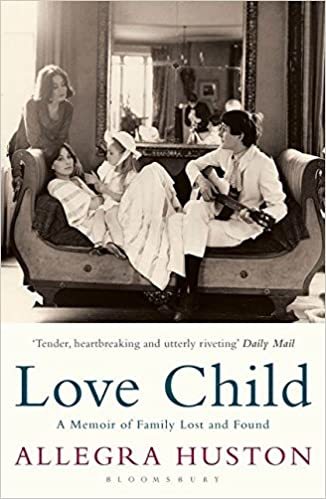 When Allegra Huston was four years old, her mother was killed in a car crash. Soon afterwards, she was introduced to an intimidating man wreathed in cigar smoke – the legendary film director John Huston – with the words, ‘This is your father.’
When Allegra Huston was four years old, her mother was killed in a car crash. Soon afterwards, she was introduced to an intimidating man wreathed in cigar smoke – the legendary film director John Huston – with the words, ‘This is your father.’
So began an extraordinary odyssey: from the magical Huston estate in Ireland, to the Long Island suburbs, to a hidden paradise in Mexico – and, at the side of her older sister, Anjelica, into the hilltop retreats of Jack Nicholson, Ryan O’Neal and Marlon Brando. Allegra’s is the penetrating gaze of an outsider never quite sure if she belongs in this rarefied world and of a motherless child trying to make sense of her famous, far-flung family. Then, at the age of 12, Allegra’s precarious sense of self is shattered when she is, once more, introduced to her father – her real one, this time, the British aristocrat and historian John Julius Norwich.
Beautifully written and forensically honest, Love Child is an exploration of the secrets of a fragmented family, and Allegra’s compelling attempt to unite those fragments and forge a connection with the mother she never knew.
About the Publishing Talk MasterclassesOur online masterclasses are talks, interviews, seminars and workshops from successful authors, publishers, agents and industry experts designed to help you fulfil your potential as an author. Find out more on our masterclasses page.
 You will be sent email reminders with joining instructions two days, two hours and 10 minutes before the start time of 6:30pm UK time (BST) on Weds 14th Jul 2021.
You will be sent email reminders with joining instructions two days, two hours and 10 minutes before the start time of 6:30pm UK time (BST) on Weds 14th Jul 2021.
You can join this masterclass from anywhere in the world. If you’re outside the UK, please use this time zone converter to check your local live streaming time.
10:30am PDT | 11:30am MDT | 12:30pm CDT | 1:30pm EDT | 6:30pm BST | 7:30pm CEST
The post MASTERCLASS: How to Write a Memoir – with Allegra Huston (Online, Weds 14th Jul, 2021) appeared first on Publishing Talk.


April 14, 2021
MASTERCLASS REPLAY: How to Perfect Your Submission – with Scott Pack
The video replay, slides and FREE chapter from Scott Pack’s masterclass How to Perfect Your Submission to Agents and Publishers (Wed 10th Feb 2021).
This content is for members only. Visit the site and log in/register to read.The post MASTERCLASS REPLAY: How to Perfect Your Submission – with Scott Pack appeared first on Publishing Talk.

MASTERCLASS REPLAY: How to Build a Writing Habit – with Bec Evans
The video replay, slides and PDF download from Bec Evans’s masterclass on How to Build a Writing Habit (Weds 6th Jan 2021).
This content is for members only. Visit the site and log in/register to read.The post MASTERCLASS REPLAY: How to Build a Writing Habit – with Bec Evans appeared first on Publishing Talk.

MASTERCLASS REPLAY: How to Become a Kindle Bestseller – with Nicola May
The video replay of Nicola May’s masterclass on How to Become a Kindle Bestseller, from Weds 9th Dec 2020. Includes PDF handout and links.
This content is for members only. Visit the site and log in/register to read.The post MASTERCLASS REPLAY: How to Become a Kindle Bestseller – with Nicola May appeared first on Publishing Talk.

March 27, 2021
10 ways to market your book if you really don’t like marketing

You know that you need to market your book. But what if you really, really, don’t like marketing? You became a writer to write, after all – not to sell.
Reading Time: 8 minutes
Do you feel that writing is what you’re good at – and marketing isn’t? It’s true that writing is your primary task. It’s natural to want to play to your strengths and focus on what you love doing – without the inconvenience of having to having to find an audience for it. But it’s also true that you won’t last long as a writer without a readership.
Yes, you’re more likely to have some success with a book that you don’t market than with lots of marketing but without a product. Though don’t underestimate the value of audience-building before you have a book. But if you want your work read, people need to know about it – and about you. You’ll also have more success the more books you write. “If you liked X you may also like Y” only works when there is a Y to promote, after all – and preferably a Z too.
Here are some painless ways to approach marketing if you really don’t like marketing.
1. Write a really good bookIt may sound trite, but there really is no substitute for quality. The holy grail of marketing is always word-of-mouth recommendation from other readers. While there are many ways you can use online marketing to facilitate and boost this, it won’t work with a bad book. Write a remarkable book and you stand a better chance. A book that other people will want to talk about, and recommend to their friends.
Write a good book, and other people will market your book for you. A recommendation from a friend – or an online ‘influencer’ – always carries more weight than the author saying ‘please read my book’. You have a vested interest in people reading your book. Other readers don’t.
2. Develop a positive attitudeIf you want to build a career as a full-time author, rather than keep it as an evenings-and-weekends hobby, your writing must pay. And to make it pay your work must be marketed to a paying public. Furthermore, you’re likely to have to get involved in promoting it yourself. But it might not be as bad as you think. You might even enjoy it.
If you’re positive about your book, and excited by it, other people will pick up on it. Are you thrilled to receive a box of advance copies from your publisher? Of course you are! Say so, with a photo or video of you opening the box on Instagram. Did you enjoy spending the last year or so with the characters in your novel? It’s OK to say so, and that you’re excited for other people to meet them. Have you finally written a memoir about a difficult issue that might help a reader with a similar problem? Share what the book means to you – and what you hope others will get out of it.
Some authors have a negative, resentful attitude to marketing. They think it’s their publisher’s job. They’re a writer, and shouldn’t have to get involved with their own marketing. Resentful writers don’t sell books. Positive authors do.
3. Get your publisher to market your book for youAre you traditionally published? You might be able to get your publisher to market your book for you. Well, maybe. The truth is that few titles get selected for publicity. If you’re a famous, bestselling author, you can expect your publisher to do much of the work for you. If you’re not, they simply won’t have the budget.
You might have a successful book without doing much marketing yourself – if you’re traditionally published and one of the lucky few authors who has the weight of a big corporate publicity department behind them. This scenario is rare. I know from my long experience of working in publishing that those ‘publicity titles’ are a drop in the ocean of the output of most publishers. A few books will be selected – the rest will get the bare minimum.
And even if you’re one of those lucky few, you’ll still have to do some work yourself to market your book, such as media interviews, articles for the press, literary festivals – and generally be available to meet all those publicity demands your publisher generates. Some authors enjoy that side of things, others don’t. Some even complain about it on social media – and get told off by those authors who can only dream of such success.
But you should expect some marketing effort from your publisher, if you’re traditionally published. Discuss this with them early, and involve your agent in those conversations and meetings, if you have one. It’s reasonable to ask in advance what your publisher will be doing for you and your book.
4. Hire someone else to market your book for youIf you’re self-published, you have to market your book yourself, of course. Or do you? The alternative is to hire someone to do it for you. So, if you’re in the happy position of being able to afford some freelance help, then outsource the job you don’t like / aren’t good at (marketing) so you can free up more of your time to concentrate on your core objective (writing). This is something many businesses do. And it’s often more affordable than you think.
If your books are selling well enough, let your success build on itself by outsourcing the marketing (which should boost sales) so you can write more books (and have more to sell). This entrepreneurial spirit is often to be found among self-published writers. Find people to help you with marketing using online directories such as Reedsy or Upwork.
5. Don’t market – build relationshipsDon’t think of it as marketing. Some people are put of by squeamishness at all those ‘please buy my book’ messages on social media. If you’re one of them: good! I totally agree with you. There’s nothing worse than spammy, salesy ‘buy now!’ updates cluttering up your timelines. Online marketing should be about sharing useful, interesting, thought-provoking or funny content. Sales are important, but secondary in the process.
And when you do talk about your book, think of it as storytelling rather than marketing. Like all good stories, the story you’re telling has a beginning, middle and end: what motivated you to write your book, what you discovered along the way – and what you hope others will gain from reading it.
6. Don’t be afraid to share your successesDon’t be too squeamish, though. Some authors are so shy about online marketing that they practically keep the fact that they’ve written a book a secret. This is rather pointless, and unnecessary. You are allowed to mention the fact that you are an author, and have written a book! If you’re already on, say, Twitter, and are already published, then a proportion of your followers will inevitably be your readers and fans. They’re following you because they’ve read your books. They also want to hear when your next book is coming out – and you’re doing them a disservice if you don’t let them know.
I would go so far as to say that coyness about your book, or your success in any field, is almost rude. No one achieves things alone – and if you don’t announce your book, or celebrate your success, it’s rude to the other people involved. These people may include your publisher, the hosts of a literary festival you’re speaking at, or the organizers and sponsors of a prize you’ve won. It also denies your friends, followers and readers, who want to hear your news. Share it with the world!
Your success doesn’t have to be winning the Booker Prize, though. You don’t even need to have had your book published yet. Share small wins from the writing process. As well as sharing details from your life with your followers, you’ll be helping to build anticipation for your forthcoming book.
7. Don’t feel you have to do everythingYou don’t need to use every online marketing tool out there. Get an overview of what tools and platforms are available – then decide what works for you, what you have the time for and what you enjoy doing. You can research something new whenever you feel you’re ready to try a different approach, need inspiration, or if you feel you’re not getting the results you want. But start small, and gradually increase your tools, platforms and activity as you feel necessary. See what works – and do more of that.
8. Share other people’s books tooAre you worried about posting about your own books all the time? Why not post other people’s books too? Authors are also readers – and sharing what you’re reading is a great way to connect with other readers online. Many authors I know regularly post about the books they’re reading or have just read, often with a short review. Sometimes they’re sent advance copies to review, and they post about them too, saying they ‘can’t wait until this comes out!’
This all helps position you as someone who loves books, and connect with other people who love books. Sometimes your posts will be about your own books – and that’s fine too. It also helps create a what-goes-around-comes-around literary karma: if you’ve previously promoted an author’s work (don’t forget to tag them!), that author may then follow you, notice when you have a book out, and return the favour. If they like your book. But don’t expect this, or just promote other people’s books in the hope that they’ll do the same for you. Be authentic. Keep it real.
9. Focus on the topic rather than the bookThis works particularly well if you write non-fiction. For example, Mel Robbins is a life-coach and motivational speaker who writes bestselling books. Her Twitter and Instagram feeds are full of inspirational quotations and practical advice. Jonathan Hoban is a pioneer of ‘walking therapy’ – and author of Walk With Your Wolf: Unlock your intuition, confidence & power with walking therapy. His Instagram feed is full of videos of him walking and talking and offering advice.
This doesn’t just apply to therapy, of course. It works for any niche topic, from carpentry to flower arranging to parenting. It can even be a way to get a book deal. Ana White is the author of The Handbuilt Home: 34 Simple Stylish and Budget-Friendly Woodworking Projects for Every Room. She got a book deal off the back of her blog, where she gave away lots of free woodworking plans.
You can also do this if you write fiction. The topic may not be as immediately obvious – but you can always share writing tips (#WriteTip) and advice for other would-be authors. Write romantic fiction set in Cornwall? Share images of Cornwall that inspire your writing. It works for author Liz Fenwick, who regularly shares photos – and videos – 0f her ‘plot walks’, with the hashtag #PlotWalk.
People come for the advice, inspiration and information – and go on to buy the book. Or they buy the book and then follow the author on social media – and get a recommendation for the next book! Either way, it’s a topic-based feedback loop. But you can make your focus the topic rather than the book. Just be sure to include a link in your bio to where people can find your book – and mention your book occasionally.
10. Have funYou don’t have to be a marketing guru. Just be yourself. You can be playful, irreverent, authentic and human on social media. Talk about what you’re reading, watching on TV, or having for lunch. Share pictures of your dog (people love dogs), or photos of you having fun with friends and family. Talk about what you like and what you do. One of the things you do is write books – so why wouldn’t you mention that?
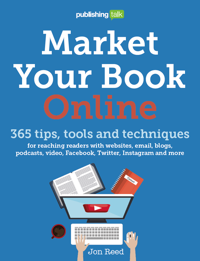 Market Your Book Online
Market Your Book OnlineThis post is an extract from my forthcoming book Market Your Book Online: 365 tips, tools and techniques for reaching readers with websites, email, blogs, podcasts, video, Facebook, Instagram, Twitter and more. Available for pre-order soon. Sign up to the newsletter to hear more.
The post 10 ways to market your book if you really don’t like marketing appeared first on Publishing Talk.


March 5, 2021
MASTERCLASS: How to Build a Writing Habit – with Bec Evans (Online, Weds 20th Oct, 2021)
 How to Build a Writing Habit in 2021, with Bec Evans – Online, Weds 20th Oct 2021Boost your writing productivity with this masterclass packed full of advice and inspiration from Bec Evans.
How to Build a Writing Habit in 2021, with Bec Evans – Online, Weds 20th Oct 2021Boost your writing productivity with this masterclass packed full of advice and inspiration from Bec Evans. Masterclass: How to Build a Writing Habit
Masterclass: How to Build a Writing Habit
Speaker: Bec Evans
When: Wednesday 20th October 2021, 6:30pm UK time
Where: Online – join us from anywhere in the world
Price: £10-£30 (or equivalent in your currency)
Booking: Eventbrite (Limited places available – book early!)
This post contains Amazon affiliate links to the books mentioned. See our Affiliate policy for more details. Books by our masterclass speakers are also available in our Bookshop.org bookshop.
Join writing productivity expert Bec Evans of Prolifiko, and build a sustainable writing habit.If you want to be a successful author, you need to write – a lot! But do you struggle to find time to write? Do you get distracted by important or urgent tasks, feel blocked, or fail to make progress with writing projects? Then stop worrying and sign up for support.
Are you doing NaNoWriMo this year? Binge-writing works for some, and can be a great way to get down a first draft. But to keep going, keep writing and acheive your writing goals long-term, you need to build a sustainable writing habit. One that fits in around your busy life.
In this masterclass, writing productivity expert Bec Evans of Prolifiko will guide you with tried and tested approaches that will help you create a writing habit that works for you. She’ll help you find time, support and the systems that keep you going.
You’ll come away inspired and motivated to start – and keep – writing!
What we will cover:Prioritise your writing and make time for itSet motivating and achievable writing goalsBeat distraction by understanding what stops you writingImprove your productivity and feel positive about your progressBec’s top tips for keeping going long term.Workshop includes:Valuable insights, practical tips and inspiring advice from Bec EvansYour chance to ask Bec anything about starting and keeping going with writingA one-page PDF download with additional tips Access to a video replay of the event.About Bec EvansBec Evans is a writer, speaker, coach and consultant who works with the publishing and creative writing sectors. As co-founder of Prolifiko, she helps people become more productive writers, and offers courses including a free 7-Day Writing Sprint and an intensive 4-Week Writing Bootcamp.
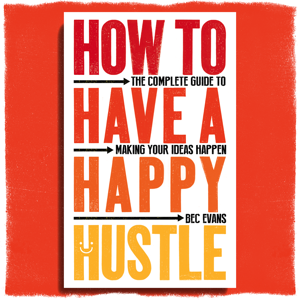 Bec has spent a lifetime reading, writing and working with writers. From her first job in a bookshop, to a career in publishing, and several years managing a writers’ retreat centre for Arvon, she’s obsessed with working out what helps writers write.
Bec has spent a lifetime reading, writing and working with writers. From her first job in a bookshop, to a career in publishing, and several years managing a writers’ retreat centre for Arvon, she’s obsessed with working out what helps writers write.
Bec’s first book, How to Have a Happy Hustle: The Complete Guide to Making Your Ideas Happen, won the Startup Inspiration category at the 2020 Business Book Awards.
It is available from Amazon and all books by our masterclass speakers are also available in the Publishing Talk Bookshop.org bookshop, which helps support local, independent bookshops in the UK.
About the Publishing Talk MasterclassesOur online masterclasses are talks, interviews, seminars and workshops from successful authors, publishers, agents and industry experts designed to help you fulfil your potential as an author. Find out more on our masterclasses page.
Discounts available for Patrons. See our
Patreon
page for details.

You will be sent email reminders with joining instructions two days, two hours and 10 minutes before the start time of 6:30pm UK time (BST) on Weds 20th Oct 2021.
You can join this masterclass from anywhere in the world. If you’re outside the UK, please use this time zone converter to check your local live streaming time.
10:30am PDT | 12:30pm CDT | 1:30pm EDT | 6:30pm BST | 7:30pm CEST
The post MASTERCLASS: How to Build a Writing Habit – with Bec Evans (Online, Weds 20th Oct, 2021) appeared first on Publishing Talk.

February 12, 2021
MASTERCLASS: How to Perfect Your Submission to Agents and Publishers – with Scott Pack (Online, Weds 15th Sep, 2021)
 Masterclass: How to Perfect Your Submission to Agents and Publishers
Masterclass: How to Perfect Your Submission to Agents and Publishers
Speaker: Scott Pack
When: Wednesday 15th September 2021, 6:30pm UK time
Where: Online – join us from anywhere in the world
Price: £10-£30 (or equivalent in your currency)
Booking: Eventbrite (Limited places available – book early!)
This post contains Amazon affiliate links to the books mentioned. See our Affiliate policy for more details. Books by our masterclass speakers are also available in our Bookshop.org bookshop.
How to Get a Publishing Deal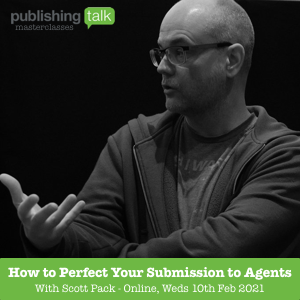 Want to get a publishing deal? You need a winning strategy, a compelling synopsis and a killer cover letter!
Want to get a publishing deal? You need a winning strategy, a compelling synopsis and a killer cover letter!
Scott Pack returns for his popular Publishing Talk Masterclass on how to perfect your submission to agents and publishers.
Get practical, no-nonsense advice on submitting your book proposal to agents and publishers from veteran publisher Scott Pack on this essential masterclass for new authors.
If you follow the step-by-step advice in this class, you will significantly increase your chances of success. Most authors DON’T – so you’ll already be ahead of the game!
What you will learnWhether you’re writing fiction or non-fiction, this class offers straightforward advice on how to ensure your submission has the best chance of success.
You’ll learn how to identify the right agent or publisher to submit to, how to write a killer synopsis and cover letter, and how to avoid the pitfalls so many aspiring authors fall into. Plus, for those brave enough to share their pitches, there’ll be a chance to receive a live critique during the session.
How to Submit to Agents and PublishersWhat we will cover:How to research agents and publishers – and identify the right ones for youHow to write a cover letter that will ensure your pitch and synopsis get readHow to put together an enticing submission packageThe secrets to writing a good synopsisThe differences between submitting fiction v. non-fictionCommon mistakes made by writers – and how to avoid them.Workshop includes:A FREE CHAPTER from Scott Pack’s book Tips from a Publisher: A Guide to Writing, Editing, Submitting and Publishing Your Book (Eye Books, 2019) as a PDF download.Valuable, no-nonsense advice and practical tips from Scott PackPractical session: a few volunteers will be selected to have their pitch critiqued during the class (optional). You can pitch your book and/or ask questions via live video, in the text-based chat, or submit your pitch/question on the booking form.Your chance to pick the brains of an experienced publisherAccess to a video replay of the event. This event will be recorded, and the video made available to participants, and to our Patrons.About Scott PackScott Pack was head of buying at the Waterstones book chain before spending several years as a publisher at HarperCollins, acquiring and editing numerous bestsellers and award-winning books.
He is now a freelance editor and university lecturer, and hosts many writing workshops and classes.
Scott is also the author of two essential guides for authors: a short ebook, How to Perfect Your Submission; and Tips from a Publisher: A Guide to Writing, Editing, Submitting and Publishing Your Book (Eye Books, 2019), which is also available in the Publishing Talk Bookshop, which helps support local, independent bookshops in the UK.
About the Publishing Talk MasterclassesOur online masterclasses are talks, interviews, seminars and workshops from successful authors, publishers, agents and industry experts designed to help you fulfil your potential as an author. Find out more on our masterclasses page.
Discounts available for Patrons. See our Patreon page for details.
You will be sent email reminders with joining instructions two days, two hours and 10 minutes before the start time of 6:30pm (UK time, BST) on Weds 15th Sep 2021.
You can join this masterclass from anywhere in the world. If you’re outside the UK, please use this time zone converter to check your local live streaming time.
10:30am PDT | 12:30pm CDT | 1:30pm EDT | 6:30pm BST | 7:30pm CEST
The post MASTERCLASS: How to Perfect Your Submission to Agents and Publishers – with Scott Pack (Online, Weds 15th Sep, 2021) appeared first on Publishing Talk.


January 30, 2021
MASTERCLASS: How to Become a Kindle Bestseller – with Nicola May (Online, Weds 28th Jul, 2021)
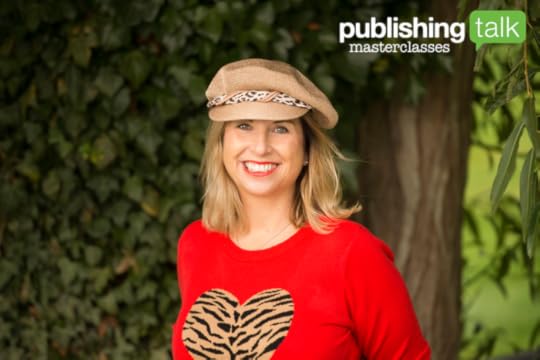 How to Become a Kindle Bestseller, with Nicola May – Online, Weds 28th Jul 2021Join self-publishing sensation Nicola May in conversation with Jon Reed – and find out how she became a #1 Kindle bestselling author.
How to Become a Kindle Bestseller, with Nicola May – Online, Weds 28th Jul 2021Join self-publishing sensation Nicola May in conversation with Jon Reed – and find out how she became a #1 Kindle bestselling author. Masterclass: How to Become a Kindle Bestseller
Masterclass: How to Become a Kindle Bestseller
Speaker: Nicola May
When: Wednesday 28th July 2021, 6:30pm – 8:00pm UK time (BST)
Where: Online
Booking: Eventbrite (limited places available – book early!)
This post contains Amazon affiliate links to the books mentioned. See our Affiliate policy for more details. Nicola May’s books are also available in our Bookshop.org bookshop.
How to get to #1 on KindleHave you been thinking of publishing a Kindle ebook? Perhaps as a way to earn some extra income? There’s never been a better time: people are reading more than ever. We’re delighted to welcome chart-topping self-published author Nicola May back for another illuminating masterclass, in which she’ll reveal her top tips for sales success.
The Corner Shop in Cockleberry Bay, book 1 in Nicola’s bestselling Cockleberry Bay series, became the #1 bestselling Kindle book across all genres in the UK in 2019, gathered thousands of five-star reviews on Amazon, and led to three more books in the series. But how did she do it? All will be revealed in this essential masterclass for any author who wants to become a bestseller.
In July the first book in Nicola’s new series, Welcome to Ferry Lane Market, is published by Hodder Books. Having experienced publishing as both a traditionally published and indie author, we will also consider the pros and cons of each approach.
How to become a bestsellerWhat we will coverWhat it takes to become a Kindle bestsellerThe pros and cons of self-publishing v. traditional publishingHow to spot trends and write what people want to readWriting in genres and seriesThe Kindle Direct Publishing (KDP) platformThe essential self-publishing tools and services that Nicola usesNicola’s top tips for marketing your book.Workshop includes:Valuable insights, tips and advice from Nicola MayYour chance to ask Nicola anything about self-publishingA PDF resource with Nicola’s top tips for self-publishing successAccess to a video replay of the event.About Nicola May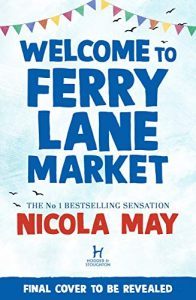 Nicola May is a rom-com superstar. She is the author of a dozen romantic comedies, all of which have appeared in the Kindle bestseller charts, including the #1 bestselling The Corner Shop in Cockleberry Bay.
Nicola May is a rom-com superstar. She is the author of a dozen romantic comedies, all of which have appeared in the Kindle bestseller charts, including the #1 bestselling The Corner Shop in Cockleberry Bay.
Two of them won awards at the Festival of Romance, and another was named ebook of the week in The Sun. Described by Winifred Robinson of BBC Radio 4’s You and Yours as ‘the invisible bestselling author’, Nicola campaigned successfully for the introduction of ebook charts in the publishing trade press.
In November 2020 she also signed a three-book deal with Hodder. The first book in that series, Welcome to Ferry Lane Market, publishes on 22nd July 2021. See Nicola May’s interview on this blog for more details.
You can find all books by our masterclass speakers in our Publishing Talk Bookshop.org Bookshop, which also helps support local independent bookshops in the UK.
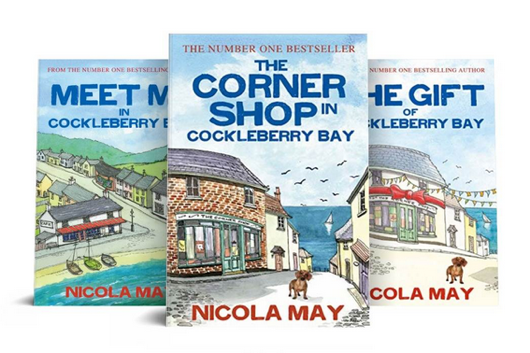
Our online masterclasses are talks, interviews, seminars and workshops from successful authors, publishers, agents and industry experts designed to help you fulfil your potential as an author. Find out more on our masterclasses page. Discounts available for Patrons.
 You will be sent email reminders with joining instructions two days, two hours and 10 minutes before the start time of 6:30pm UK time (BST) on Weds 28th Jul 2021.
You will be sent email reminders with joining instructions two days, two hours and 10 minutes before the start time of 6:30pm UK time (BST) on Weds 28th Jul 2021.
You can join this masterclass from anywhere in the world. If you’re outside the UK, please use this time zone converter to check your local live streaming time.
10:30am PDT | 1:30pm EDT | 6:30pm BST | 7:30pm CEST
Tweets about the previous edition of this masterclass (9th Dec 2020)
Feeling SUPER inspired after a wonderful online masterclass with the one & only @nicolamay1
Amazing. So happy I signed up!
Thank you so much, Nicola! pic.twitter.com/HkcRKriUXT
— Isabella May (@IsabellaMayBks) December 9, 2020
It was a really inspiring talk, I agree. Thanks Nicola! @nicolamay1 @jonreed @publishingtalk Such an interesting writing journey.
— Lizzie Chantree (@Lizzie_Chantree) December 10, 2020
What a fabulous session! Thanks so much @publishingtalk and @nicolamay1 Looking forward to the next one.
— Elaine Spires (@ElaineSWriter) December 9, 2020
The post MASTERCLASS: How to Become a Kindle Bestseller – with Nicola May (Online, Weds 28th Jul, 2021) appeared first on Publishing Talk.


January 21, 2021
How to get a literary agent – 7 steps to success

Reading Time: 9 minutes
Do you dream of being a published author? Want to see your book on the shelves of your local bookshop, have your work read by legions of appreciative fans, and be fêted at literary festivals? For such dreams to come true, first you need to land a publishing deal. And, before that, you need to get taken on by a literary agent. Where do you start?
Learn more about submitting to agents on Scott Pack’s masterclass: How to Perfect Your Submission to Agents and Publishers – online, Weds 10th Feb 2021, 18:30 UTC.
How to get a literary agent – at a glance:Finish your novelDo your researchWrite a synopsisPrepare your sample chaptersWrite a query letterSubmit to literary agentsGet an offer of representation!This article focuses on fiction authors, who absolutely need a literary agent in order to be considered by a publisher (you don’t always need one for non-fiction). Follow these steps to give yourself the best chance.
1. Finish your novelThis sounds conterintuitive. Because, when you submit to an agent, they usually only want to see a writing sample. Maybe a couple of chapters. Or three. So why write the whole thing? Why not get an agent, a publishing deal and a juicy advance first, so you have the time and money to actually write the thing?
Because, if you’re successful, and the agent you submit to likes your material, the very first thing they’ll ask is to see the whole thing! If you haven’t actually written it yet, you’ll just annoy them. Yes, the process of submitting and landing an agent can take a while. But what if you strike gold on your first attempt? Be prepared!
2. Do your research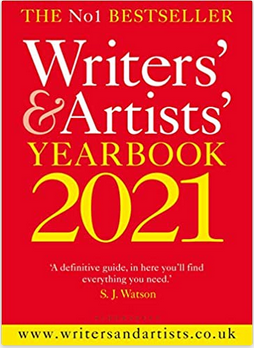 The other way you need to prepare is with your research. If you’re in the UK, The Writers’ & Artists’ Yearbook is your friend. In the US, Writer’s Market is the equivalent publication. These annual directories list all the publishers and literary agents you could possibly want to submit to – along with their interests, submisison guidelines and contact details. They also include advice and articles on getting published.
The other way you need to prepare is with your research. If you’re in the UK, The Writers’ & Artists’ Yearbook is your friend. In the US, Writer’s Market is the equivalent publication. These annual directories list all the publishers and literary agents you could possibly want to submit to – along with their interests, submisison guidelines and contact details. They also include advice and articles on getting published.
Research the right literary agent for you. Look through these books. Go onto agents’ websites and look at their client lists. Check out what sort of books they’re interested in. See what their clients have recently published. Which books are similar to yours? Read one of them. Be informed about your potential new agent’s interests before you approach them.
Then make a list of agents you want to submit to. Who would be your dream agent? Put them at the top of the list!
3. Write a synopsisThere are three things you need: a synopsis, sample chapters and a cover letter (or ‘query letter’). Let’s start with your synopsis. Write out everything that happens in your novel, in the order in which it happens, in the present tense. Keep it to no more than two pages (ideally one).
And don’t hold anything back – let us know how your story ends! You may have intriguing twists, turns and reveals in your novel that you want to hold back from the reader – but don’t do this with your prospective agent. This is no time to be coy or worry about spoilers. You can still build tension in the way you write your synopsis, and keep the reader intrigued. Do this by only revealing plot points at the correct time in your synopsis. So don’t say: ‘…and he later turns out to be the killer all along’ in your opening paragraph. Save that information until the part of the story when it is revealed to the reader. Then your synopsis can be as engaging and satisfying as the full book.
A good place to research how to write synopses is Wikipedia. Look up a favourite novel – or film – and read the summary. Even the most complex novels can be sumarised briefly in the present tense without leaving anything out.
4. Prepare your sample chaptersThe purpose of your sample chapters is to flesh out some of your synopsis and, importantly, to demonstrate your writing style. An agent wants to see that you can write – or at least have potential. A couple of sample chapters is usually sufficient – but it depends on the submission guidelines of the agents on your list. Your research in step 2 will help you not only identify suitable agents, but tell you what they want you to submit – and how. Many only accept submissions by email these days, for example. Some may want one chapter, some 10,000 words, some the whole book. It depends.
One important thing to bear in mind is that, whether your prospective literary agent wants one chapter or three, they must be the first chapter, or the first three chapters. You may be writing your book out of order (I certainly do this). You may think chapter 12 shows off your writing best. But it MUST be the first chapter(s). You must be able to hook a reader in your opening pages – and your most important reader is your agent.
First chapters are hard. You need to get us straight into the action, hold a reader’s attention, introduce your main character, explain what your book is about (without too much exposition – show, don’t tell), articulate your theme, make us care about your protagonist and the problems you set for them, hint at what’s to come, and show that you can write compelling prose in a unique voice. Phew!
But first chapters are also great to write. They’re an opportunity to set out your stall, show what you can do, confound expectations, surprise the reader, be audacious. If there’s a question at the heart of your novel, be sure to ask it in the first chapter! Your first chapter should give a tantalising taste of what’s to come if you read the whole novel. This is why your prospective new literary agent wants to see it. Hook them in.
5. Write a query letterA query letter is a one-page sales letter that you send to a literary agent to pitch your book and ask them if they would be interested in representing you. The ‘query’ is: “Will you be my agent?” And the ‘letter’ probably isn’t a physical one, or even an email attachment. It’s more common to put this into the body of an email.
You might send your query letter as an email, with your synopsis and sample chapters attached as Word documents. But always check the submission guidelines. Some agents may prefer an email (without attachments) first – and they’ll let you know if they want to see more. This is why your query letter is so critical.
Be sure to personalise each letter. Use the agent’s name (spelled correctly!) and include:
Why this agent? A short paragraph about why you’ve chosen to approach this particular agent. Do you love the work of one of their clients? Does their website indicate that they’re particularly interested in your niche genre? Did you meet them once at a literary event? Do you follow them on Twitter?Blurb. An enticing paragraph of blurb ‘selling’ your book, and setting out its overall concept. Specify the genre, and who it’s aimed at – e.g. contemporary women’s fiction, techno thriller, young adult, comedy political thriller.About you. A line or two about yourself, and any writing credits you have. Maybe something on your ‘platform’ – i.e. your existing (online) audience, if you have one.Your query letter is, in many ways, the most important part of the package – because you want to grab your chosen agent’s attention and persuade them that reading the rest of your submission is worth their time.
6. Submit to literary agentsYou tend only to get one shot when submitting to a literary agent. If they don’t like your submission, you’ll most likely have to try elsewhere rather than make changes and re-submit. So give it your best shot each time.
Work your way through the list you generated in your research phase – starting with your dream agent and working down. You can approach several agents at once – it’s sort of expected. It may take three months for an agent to reply to you – and you can’t wait around that long. Send out queries to up to six of them at a time. This will help you guage responses. If you get no requests for further material, your query letter needs work before you send it out again!
Keep track of what you’ve sent to whom and when. Log it all in a spreadsheet, along with details of any responses. You’re likely to get one of these responses to your query letter:
A rejectionNo response at all (usually also a rejection)A request for more materialA request to see the whole manuscript.The last two of these responses may subsequently also result in a rejection. Don’t give up. Sometimes an agent will reject you simply because their list is full. Or they might think your book isn’t the type of book they can sell to publishers. You might get some feedback on your submission. More often you’ll get a standard rejection slip. Don’t take offence – agents are busy people and get a lot of submissions. If you hear nothing, follow up with a polite note after 6-8 weeks.
And don’t argue. If you get a rejection, be grateful for any feedback offered, accept it with good grace and move on to the next agent on your list.
It may be your writing that needs work, rather than your query letter, if you get several requests to see sample material but then get rejections. Seek more feedback – maybe by joining a writing group. Re-work it and try again.
However, if an agent is interested in you and your book, the next step is a meeting with them to discuss it. And then, possibly, an offer of representation. But be aware that every stage of this process can result in rejection. If you’re offered a meeting, it doesn’t mean the agent will definitely take you on. But they might.
7. Get an offer of representationCongratulations! Getting an agent is, understandably, the most exciting step for many aspiring authors. Finally the doors to the publishing industry have been thrown open to you – big advances, bestseller lists and literary prizes await!
Well, maybe. But don’t get carried away just yet. And don’t let your head be turned by the first agent who offers to represent you. Landing an agent is, understandably, seen as the Holy Grail by many an aspiring author. It’s easy to get carried away with excitement and gratitude and accept an offer – any offer – from the first person who shows an interest in you.
Don’t underestimate your value as a new writer. Debut fiction is very saleable! If you have more than one expression of interest, weigh up the pros and cons of each, ask questions, and be honest with yourself about what’s important to you. Crucially, do you get on with this person? So much of the publishing industry is based on personal relationships – and the author-agent one is a critical one.
Keep it professional, make sure your prospective new agent is the right agent for you – and your book. Meet the agent. Be prepared to talk about your writing – and what books you like reading – but also ask questions. Ask about how they work with clients. Do they offer editorial support, or are they more of a deal-maker? Ask which books they’ve done well with – and what their terms are.
Every agent is different, and works differently. Some are new and eager to build their list. Others are established with a portfolio of famous clients. You may prefer one who is part of a large agency. Or a sole trader with a small client list who can give you more attention may suit you better. This post gives a useful overview of seven different types of literary agent:
How to choose an agent – which of these 7 types is right for you? by Kirsty McLachlanDon’t let yourself be pushed in a radically different direction, if that’s not what you want. Occasionally you might pitch your book to an agent, but find that they want you to write something very different. They may like your style, but think that another type of novel is more saleable. An agent may sometimes even have a specific project in mind that they’re looking to get published – and are looking for someone to write it. Tread carefully. The agent may be right – they know the market, after all. But it’s your book – and you must write the book that you want to write.
The best agents will not only help you get published, they will manage your career, help you develop as a writer, and think about your long-term potential as an author. Ideally, this will be a long-term working relationship – so pick one you’re fairly sure you can work with. It is possible (and sometimes desirable) to switch agents later – though it’s a bit awkward and can get messy with the rights in your earlier books. So it pays to spend a bit of time and effort into making the right match – for both of you.
Once you accept an offer, the next stage is to sign an Agreement with your new agent (here’s what you need to know) – and for them to start working for you. Your publishing deal awaits!
The post How to get a literary agent – 7 steps to success appeared first on Publishing Talk.




